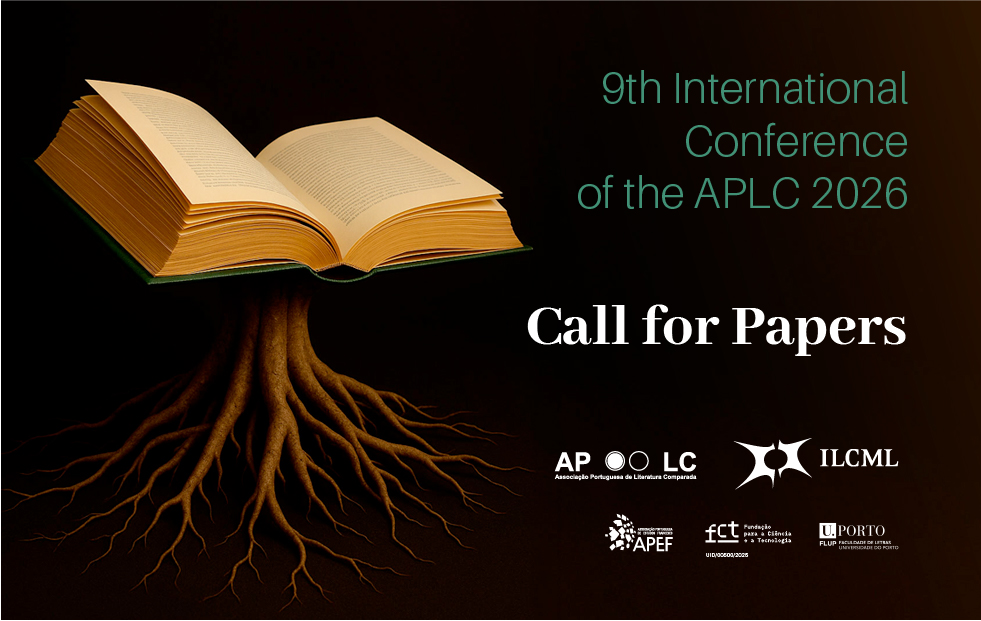Caring for literature: a comparatist practice
APLC Conference 2026
Faculty of Arts and Humanities of the University of Porto
July 15, 16, 17, 2026
ILC – University of Porto / University of the Azores
In 2003, Gayatri Chakravorty Spivak announced, in a landmark essay (Death of a Discipline), the death of Comparative Literature as a literary discipline as we had known and practiced it. The title seemed categorical. Yet several literary scholars have instead read it as a manifesto in favour of renewing the comparative method as applied to literary studies.
Indeed, Spivak set out the contradictions of traditional, Western comparatism, which the globalised perspective (Damrosch, 2003)—long favoured in literary research—sought to resolve and transcend through a new critical toolkit. This toolkit was centred on a renewed emphasis on translation, on the circulation and mapping of the text as it is read (Moretti, 2005), on polycentrism (Chakrabarty, 2000), and on the symbolic and historical tension between centre and periphery, approached through attention to hybridity, creolisation (Glissant, 1990), and the decolonisation of the canon (Bhabha, 1994; Spivak, 1999).
Twenty years later, it must be acknowledged that not only has Comparative Studies endured, but it has in fact proven to be a disciplinary weapon of resistance against the aporias of World Literature and against cultural projects founded on the global premise.
It should be emphasised that the primary commitment of comparatism is indeed to care for Literature itself, understood as an engagement with the complexity of the world. In fact, it is in itself a practice of care for Literature, always mindful of the need to remain open to new issues and critical orientations.
In the meantime, the concept of care has established itself in contemporary thought (Tronto, 1993; Latour, 2006; Laugier, 2020; Fleury, 2019) as an approach to the world whose polysemous expressions are being explored in applied research, particularly in literature (care, healing, cure). Starting from a broadened perspective on the concept and practice of care, which interrogates the literary as an ethical, epistemological, and social turning point, this conference aims to highlight the potential of the literary as an alternative heuristic knowledge of the world within the public sphere, its strong current propensity to reconnect with social engagement in the form of agency, as well as its capacity to imagine — and even to engender —worlds to come and in-the-making worlds.
Thus, care and the practice of comparatism are bound together in the renewed forms of attention pursued by literary research, as an affirmation of the resilience of this discipline—a discipline that conceives of itself as care in both senses of the term: attention and rigor. As Frédérique Toudoire-Surlapierre (2022) states, “The issue is less about attempting, for the umptieth time, to define comparative literature than about asking why it is so important to know what we are doing when we compare.”
This is why Comparative Literature secures a new theoretical and heuristic legitimacy: it does not aim solely at the differential potential of the Other, but highlights the meaning inherent in the comparatist practice — essential to identity stability — and endows the discipline with an epistemic vocation and a political impact that some may have wished to deny it. Hence, it has affinities with the dynamics of care.
The Portuguese Association of Comparative Literature (APLC), together with the co-organization of the ILC at the University of Porto and the University of the Azores, is pleased to announce this international conference, to be held at the Faculty of Arts and Humanities of the University of Porto on July 15, 16, and 17, 2026. On this occasion, it issues this call for papers to comparatist scholars for whom the concern for Literature as a comparatist practice challenges, questions, mobilises, or inspires.
Thematic Axes
1. Comparative Literature in the renewal of literary research;
2. Comparative Literature and the ethics of care;
3. Comparative Literature and the modalities and expressions of agency;
4. Comparative Literature in the conception of worlds to come and in-the-making worlds;
5. The canon, translation, and literary reading as resistance in comparatist practice;
6. Comparative Literature and the Medical Humanities;
7. Comparative Literature and anthropological fundamentals (birth, growth, transmission, death);
8. Comparative Literature and ecosystems (Ecocriticism, Geocriticism, Geopoetics, Environmental Humanities).
Proposals for panels within the thematic areas are also accepted.
Panel Submission Form:
– Name of Panel Leader
– Email
– Institution
– Research Centre
– Panel Thematic Area
– Panel Title
– Panel Participants (maximum 3)
– Abstract up to 500 words
Working languages: Portuguese, Spanish, French, English
Paper proposals
Paper proposals must include the following information: name, institutional affiliation, biobibliographical note (200 words), title, selected thematic axis, and an abstract (maximum 250 words).
Please send proposals to: congressoaplc2026@gmail.com
Presentations should not exceed 20 minutes.
Timeline
February 28, 2026: deadline for submission of paper proposals
March 27, 2026: notification of acceptance by the scientific committee
May 01, 2026: registration deadline
May 22, 2026: circulation of the provisional program
Registration
• Teachers and Researchers: (early bird – from 28 March to 17 April 2026) €120.00 | (standard – from 18 April to 01 May 2026) €150.00
• Students: (early bird – from 28 March to 17 April 2026) €85.00 | (standard – from 18 April to 01 May 2026) €95.00
• APLC members (from 28 March to 01 May 2026): €60.00
Obs.: To benefit from the APLC member price, proof of payment of membership fees must be sent by 31 January 2026).
Payment details:
Registration and payment are made through this link: https://www.letras.up.pt/si/subscriptions?event=126
Organising Committee
Maria Luísa Malato (APLC Board, U. Porto/ILC)
Fátima Outeirinho (U. Porto/ILC)
José Domingues de Almeida (U. Porto/ILC)
Dominique Faria (U. Açores/CHAM-NOVA-UAc)
Website: https://aplc2026.ilcml.com/en/
Pdf version: Portuguese, French, English


